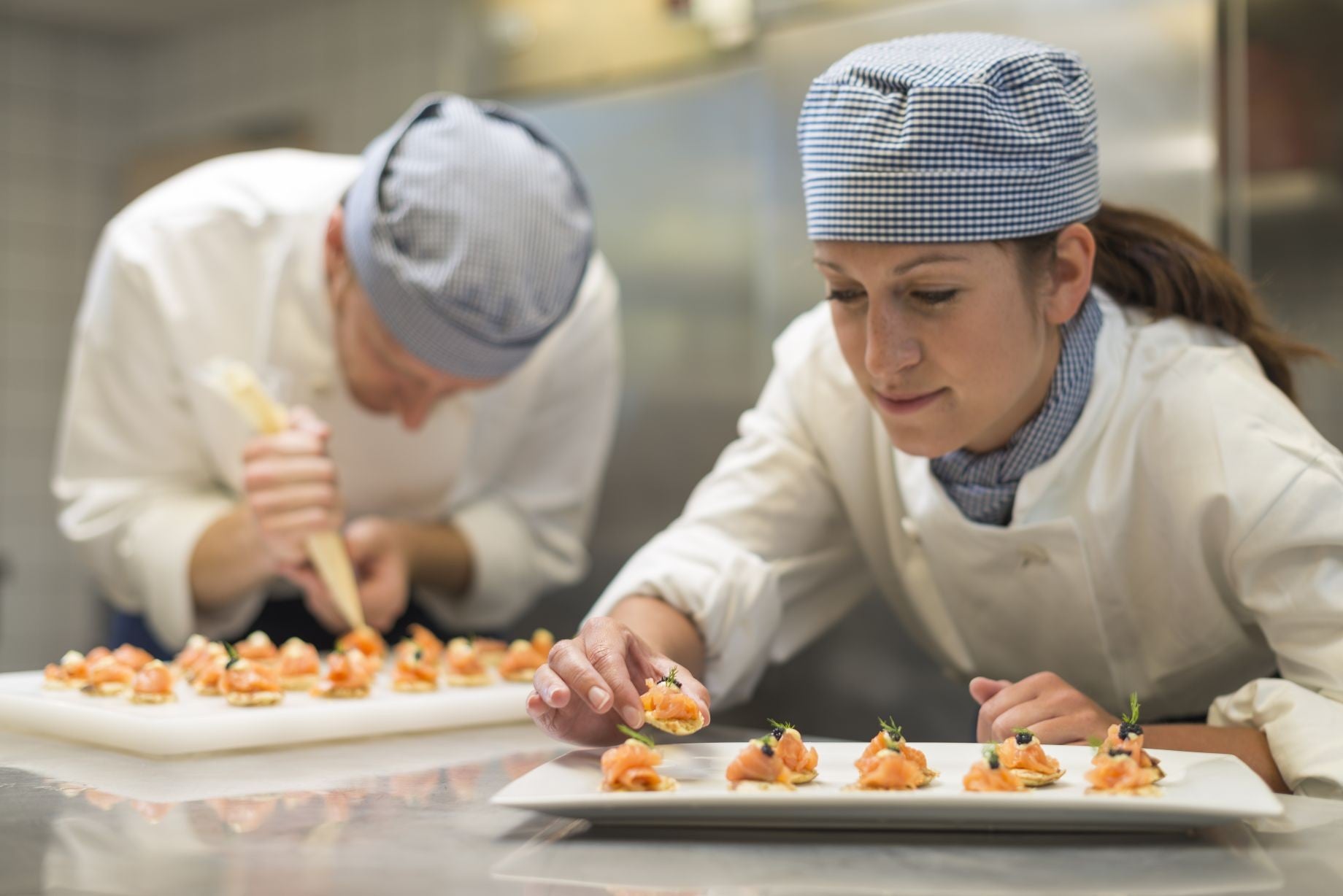Stephen Wood: Fine dining hits the heady heights
The man who skis all day

My lunch started with carrot and coriander fritters with mozzarella and sweet lime dressing. The main was a vegetable filo parcel with sweet potato purée and it was followed by a roasted pear and lime syllabub. It's the best meal I've eaten in the offices of a tour operator. Actually, it's the only meal I've eaten in the offices of a tour operator.
The meal was exceptional in other respects. The office of the Hotelplan UK brands – Inghams, Ski Total and Esprit Ski – in Godalming, Surrey, has a kitchen but no dining room in which to eat the meals cooked there. And among those who have cooked in the kitchen there was one who managed to cut himself five times while chopping a single carrot. Less surprising, given that all the brands in the building are primarily ski-holiday companies, is that should you want to eat a meal like the one I enjoyed, you will have to climb 1,000 metres above sea level or travel a long way north.
For ski chalet staff, two basic attributes are essential. They must be outgoing and engaging enough to act as hosts to the guests, and they must be able to prepare and serve a meal at the beginning and end of each skiing day. In the interview process for the 700 chalet staff that the three Hotelplan brands need per season, judging the applicants' suitability for the hosting role isn't difficult. But their culinary skills? That's more tricky.
The traditional method involved applicants bringing to the interview something they had cooked. There was always the worry that their home cooking might have amounted to little more than watching mummy remove a cake from its packaging and place it in a Tupperware box. Another problem was that the interviewer could get little sense of how the interviewee would perform under pressure. "There's no need to ask applicants to produce a four-course meal because 15-20 minutes in the kitchen would reveal whether they could cook or not," says Andy Perrin, who as Group CEO of Hotelplan UK is in charge of the three brands. When they moved into their Godalming premises this year, it provided an opportunity. "It's completely changed the hiring experience," he says. "Some candidates with the right qualities for hosting can freeze in the kitchen; and there have been others, uncommunicative in the interview, whose lights have come on when they've been given an apron."
The "freezers" could have caused chaos at Christmas and in the New Year when the chalets are full of guests who have paid high-season rates and expect high-quality service. So those candidates are invited to improve their skills by attending the £499 cookery course which takes place the week before the regular chalet-staff training in the Alps, where the altitude famously increases the time it takes to boil an egg. The latter group of applicants are particularly useful for the company's larger, 14-16-bed properties in which the two chalet staff ideally have complementary roles, one hosting and the other cooking.
Pressure cooking
The man in charge of the kitchen is Mark Vinall, who trained with Marco Pierre White and taught cookery at Eton College. He claims to be able to pick out the promising candidates from the way they chop an onion; but the main challenge is to create two courses from ingredients presented on a plastic tray. "The best cooks create the simplest dishes with minimum ingredients," Vinall says. "The worst never really decide what to make and present something that they say is not what they intended." A big part of the exercise is seeing how candidates work under pressure. "We had one who walked out and another who fainted," Vinall says. "And when things have caught fire, we've had people just say, 'It's burning', and do nothing."
Those who emerge safely from the interview and test-kitchen session will, come December, find themselves cooking the six evening meals planned by Chamonix head chef David Craig and the five area chefs, whose job is to maintain standards in the resort. The menus are identical for each chalet, with variations for dietary needs or supply problems: sea bream was unavailable in Switzerland last year, for example, and replaced by an Asian freshwater fish, pangasius.
Among the new menu items for 2012/13 are the fritters I tasted at Godalming. Like skiers and boarders, they'll go down well in the mountains.
Stephen Wood is executive editor of Condé Nast Traveller magazine
Join our commenting forum
Join thought-provoking conversations, follow other Independent readers and see their replies
Comments
Bookmark popover
Removed from bookmarks